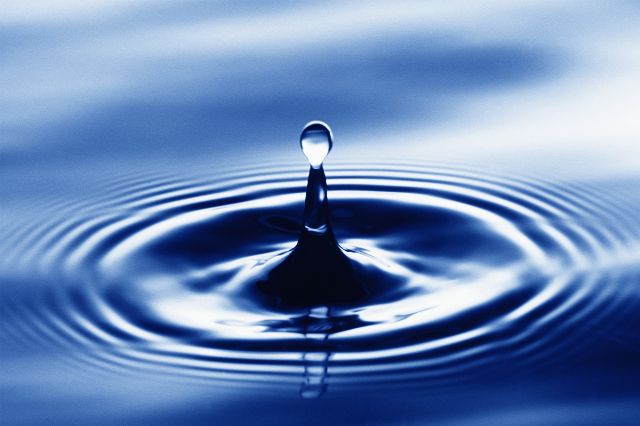Blog Archive
- 2011 (1)
-
2010
(961)
- November(1)
- October(1)
- August(133)
- July(154)
- June(146)
- May(108)
- April(113)
- March(104)
-
February(95)
- Walgreens 2/28- 3/6
- Printable coupon - $10 off Disney's Ponyo Blu-Ray/...
- Walgreens deals for the current week 2/21 - 2/27 a...
- New coupons at Coupons.com!
- Shelf Reliance: Recipe Tips for Your Food Storage!
- Great deals on kids software! As low as $4.95 + co...
- Visit Target on Saturday, February 27th for Story ...
- Frezzing Homemade Soups and Stock
- New Train Album "Save Me, San Francisco" $2.99 MP3...
- 99¢ 1-Year Domain Registration at GoDaddy.com
- Whole Foods printable coupons!
- *Offer has ended* Free kitchen, bath, and home org...
- Fox 13 Deals 2/25!!
- 15% off and Free Shipping on $50 at Children's Pla...
- 15% off at the Children's Place (in-store coupon) ...
- Ruby Tuesdays Buy 1 Select Entree, get one free up...
- Save a bundle! Use our printable shopping lists at...
- HOT milk & cereal deal at Smith's/Kroger stores!
- Scotch Fur Fighter FREE with printable coupon Targ...
- Over 90 magazines $3.75/year! Taste of Home, Weigh...
- Freezer Cooking Recipes
- Buy one RiteAid brand product, get one half off Th...
- Walgreens 7 days of photo specials - today 40% off...
- Printable coupon for a FREE item w/$15 purchase at...
- Rite Aid deals 2/21-2/27
- Dyson DC14 All Floors Upright Vacuum (Refurbished)...
- All Old Navy Women's Jeans - $19! Some as low as $...
- Enter to win this fantastic can organizer - 11 way...
- Another giveaway! Enter to win a Stylin' Binder T...
- Shelf Reliance: Instant Milk vs. Powdered Milk
- Get the JC Penney Newsletter!
- Who doesn't like FREE food?
- Great Inexpensive Easy Homemade Bread
- Free Kids Songs MP3 Download @ Amazon.com
- Fox13 Deals February 18th
- CVS shopping lists - current and preview of next w...
- Freezer Cooking, Part 3
- Some of the great deals you can find online today!
- Saving Money Without Coupons
- 15% off at the Children's Place (in-store coupon)
- Save a bundle! Use our printable shopping lists at...
- A few hot printables!
- Freezer Cooking - Part 2
- Good Things Utah: Saving Money at the Grocery Stor...
- Tips for Storing Oil
- Want a spot on our Deal Finding Team?
- Stay in touch with all the hot deals from PYP by s...
- $25 restaurant gift certificates for $3 after code!
- Rite Aid 2/14-2/20: Free Olay!
- Einstein Bros Bagels - coupons!
- Don't Hit a Dead End: Storing Water for Emergencies
- $100 in P&G coupon savings by mail with $50 P&G pu...
- Get an extra 15-20% off at Walgreen's today only!
- Today Only (2/12) ~ Free 8x10 Photo Collage at Wal...
- Freezer Cooking - Part 1
- Save a bundle! Use our printable shopping lists at...
- CVS shopping lists - current and preview of next w...
- Smith's Deals 2/10-2/16 (Many Kroger stores will h...
- Coupon by mail: FREE Excedrin product, up to $5.99
- Fox 13 Deals 2/11/10!!
- Mystery Shopping
- Lots of great Crest offers, including $10 worth of...
- Make Your Own All-Purpose Kitchen Cleaner
- New Kellogg's cereal printables!
- FREE Full Size Aveeno Stress Relief Body Lotion
- Free Valentine's Day Playlist MP3 Downloads @ Amaz...
- New $5/$25 coupon for Rite Aid!
- Make Your Own Baby Wipes
- Make Your Own Cleaning Wipes
- Controlling Your Cash
- Target Deals 2/7 - 2/13
- FREE sample of Pur Minerals mineral makeup - retai...
- And the winner is...
- Rite Aid 2/7-2/13
- Walgreens Feb 7-13
- Homemade Dish Soap
- Walgreens deals for the current week 1/31-2/6 and ...
- TVP and Freeze Dried Meat: Two Protein Options for...
- Printable Valentine's - worth 5 tokens at Chuck E....
- Homemade Laundry Soap
- KOA’s Come Kamp & Care With Us Weekend, May 14 and...
- Get a coupon for a Dozen Eggs FREE when you purcha...
- Can you be frugal and stock up at the same time?
- Under Armour shoes, hoodies, and jackets up to 50%...
- Fox13 deals 2/4/10!!
- Final clearance at JCPenney - 80% off original pri...
- Kroger/Smith's Mega Event Sale
- Save a bundle! Use our printable shopping lists at...
- Target Deals 1/31 - 2/6
- Walgreens 1/31- 2/6
- Can Preparing Your Taxes Really Be This Easy?
- New toy and game printables at Coupons.com - over ...
- Hot printable coupon: .75/1 Pepperidge Farm Goldfi...
- Vistaprint Freebies - limited time only!
- $1 Pulled Pork BBQ Sandwiches on Mondays at Dickey...
- January(106)
- 2009 (549)
- 2008 (30)
Blog Archive
-
▼
2010
(961)
-
▼
February
(95)
- Walgreens 2/28- 3/6
- Printable coupon - $10 off Disney's Ponyo Blu-Ray/...
- Walgreens deals for the current week 2/21 - 2/27 a...
- New coupons at Coupons.com!
- Shelf Reliance: Recipe Tips for Your Food Storage!
- Great deals on kids software! As low as $4.95 + co...
- Visit Target on Saturday, February 27th for Story ...
- Frezzing Homemade Soups and Stock
- New Train Album "Save Me, San Francisco" $2.99 MP3...
- 99¢ 1-Year Domain Registration at GoDaddy.com
- Whole Foods printable coupons!
- *Offer has ended* Free kitchen, bath, and home org...
- Fox 13 Deals 2/25!!
- 15% off and Free Shipping on $50 at Children's Pla...
- 15% off at the Children's Place (in-store coupon) ...
- Ruby Tuesdays Buy 1 Select Entree, get one free up...
- Save a bundle! Use our printable shopping lists at...
- HOT milk & cereal deal at Smith's/Kroger stores!
- Scotch Fur Fighter FREE with printable coupon Targ...
- Over 90 magazines $3.75/year! Taste of Home, Weigh...
- Freezer Cooking Recipes
- Buy one RiteAid brand product, get one half off Th...
- Walgreens 7 days of photo specials - today 40% off...
- Printable coupon for a FREE item w/$15 purchase at...
- Rite Aid deals 2/21-2/27
- Dyson DC14 All Floors Upright Vacuum (Refurbished)...
- All Old Navy Women's Jeans - $19! Some as low as $...
- Enter to win this fantastic can organizer - 11 way...
- Another giveaway! Enter to win a Stylin' Binder T...
- Shelf Reliance: Instant Milk vs. Powdered Milk
- Get the JC Penney Newsletter!
- Who doesn't like FREE food?
- Great Inexpensive Easy Homemade Bread
- Free Kids Songs MP3 Download @ Amazon.com
- Fox13 Deals February 18th
- CVS shopping lists - current and preview of next w...
- Freezer Cooking, Part 3
- Some of the great deals you can find online today!
- Saving Money Without Coupons
- 15% off at the Children's Place (in-store coupon)
- Save a bundle! Use our printable shopping lists at...
- A few hot printables!
- Freezer Cooking - Part 2
- Good Things Utah: Saving Money at the Grocery Stor...
- Tips for Storing Oil
- Want a spot on our Deal Finding Team?
- Stay in touch with all the hot deals from PYP by s...
- $25 restaurant gift certificates for $3 after code!
- Rite Aid 2/14-2/20: Free Olay!
- Einstein Bros Bagels - coupons!
- Don't Hit a Dead End: Storing Water for Emergencies
- $100 in P&G coupon savings by mail with $50 P&G pu...
- Get an extra 15-20% off at Walgreen's today only!
- Today Only (2/12) ~ Free 8x10 Photo Collage at Wal...
- Freezer Cooking - Part 1
- Save a bundle! Use our printable shopping lists at...
- CVS shopping lists - current and preview of next w...
- Smith's Deals 2/10-2/16 (Many Kroger stores will h...
- Coupon by mail: FREE Excedrin product, up to $5.99
- Fox 13 Deals 2/11/10!!
- Mystery Shopping
- Lots of great Crest offers, including $10 worth of...
- Make Your Own All-Purpose Kitchen Cleaner
- New Kellogg's cereal printables!
- FREE Full Size Aveeno Stress Relief Body Lotion
- Free Valentine's Day Playlist MP3 Downloads @ Amaz...
- New $5/$25 coupon for Rite Aid!
- Make Your Own Baby Wipes
- Make Your Own Cleaning Wipes
- Controlling Your Cash
- Target Deals 2/7 - 2/13
- FREE sample of Pur Minerals mineral makeup - retai...
- And the winner is...
- Rite Aid 2/7-2/13
- Walgreens Feb 7-13
- Homemade Dish Soap
- Walgreens deals for the current week 1/31-2/6 and ...
- TVP and Freeze Dried Meat: Two Protein Options for...
- Printable Valentine's - worth 5 tokens at Chuck E....
- Homemade Laundry Soap
- KOA’s Come Kamp & Care With Us Weekend, May 14 and...
- Get a coupon for a Dozen Eggs FREE when you purcha...
- Can you be frugal and stock up at the same time?
- Under Armour shoes, hoodies, and jackets up to 50%...
- Fox13 deals 2/4/10!!
- Final clearance at JCPenney - 80% off original pri...
- Kroger/Smith's Mega Event Sale
- Save a bundle! Use our printable shopping lists at...
- Target Deals 1/31 - 2/6
- Walgreens 1/31- 2/6
- Can Preparing Your Taxes Really Be This Easy?
- New toy and game printables at Coupons.com - over ...
- Hot printable coupon: .75/1 Pepperidge Farm Goldfi...
- Vistaprint Freebies - limited time only!
- $1 Pulled Pork BBQ Sandwiches on Mondays at Dickey...
-
▼
February
(95)
About Me
Join
one of our Fan pages on Facebook for local deals! |
|
|
Utah Shopping Secrets 
|
Idaho
Shopping Secrets  |
| Colorado Shopping Secrets  |
Nevada Shopping Secrets  |
| Oregon Shopping Secrets  |
Wyoming Shopping Secrets 
|
| California Shopping Secrets  |
Washington Shopping Secrets  |
Links
Subscribe via email
Subscribe Now: Feed Icon
PYP on the news!
Friday, February 12, 2010
Don't Hit a Dead End: Storing Water for Emergencies
Happy Friday, penny pinchers! This is Sara Hanks from Shelf Reliance, and I'm here for our third weekly post. Today, I'll be giving you some tips for emergency water storage and an exclusive discount you can use to improve your own supply of water.

Think back to the last time your internet connection or electricity wasn't working. If you're anything like me, it was a frustrating experience! The most humorous thing about these moments is how many dead ends you come across. For example, you might try to watch a video online when your internet suddenly decides to play dead. No worries, you think. I've actually been meaning to do some online banking. Of course, that's not an option either, but since we're so used to the internet being available, it's tough to really grasp the fact that it's not working at the moment. In the next few hours, you'll probably try again and again to do something on the web, forgetting each time that all of these activities are off-limits.
The same is true when the power is out. Can't watch TV? That's okay; you can microwave a snack instead. Microwave not working? That's okay; you can go listen to music. Oh, the stereo won't work either. Everywhere you turn, another dead end is there to greet you.
You might be wondering how internet connections and power outages relate to water storage. While most of us deal with loss of internet and electricity on a frequent basis, losing access to clean water is much rarer in today's society. You can bet, though, that a lack of water will lead to even more dead ends and a feeling of helplessness. Being without water will result in thirst and dehydration, as well as increased difficulty with cooking, cleaning, and personal hygiene. That's why it's so important to store water in your emergency supply.
How much water do I need?
The average adult should drink at least two quarts of water each day. A number of circumstances, such as a special health need or a warmer climate, will increase that amount. If you're creating a 3-day emergency supply, it's best to store at least three gallons for each person (one gallon per person, per day) for drinking, cooking, and cleaning. It's even better if you can secure a two-week supply of water for each member of your family.
In especially dire circumstances, your water supplies might run low. Though it may seem like a good idea, never ration water. Drink the amount your body needs, then try to find more for tomorrow.
How can I store water safely and conveniently?
The plastic or glass containers you use for food or beverages are suitable for storing water, and you can also purchase a variety of water containers from most outdoor or hardware stores. Stainless steel can be used to store water, as long as the water isn't treated with chlorine (as chlorine is corrosive to most metals). It's great to have these smaller containers on-hand as a source of water away from home.
55-gallon drums and other barrels used for water storage can be difficult to transport, but they're absolutely the best option for water storage in an emergency. Water barrels serve as a central source of water in your home, and it's easy to purify a greater amount of water if you're using large containers like these. Blue water barrels like the ones available at Shelf Reliance are superior to white barrels, since the dark blue color restricts light penetration and cuts down on growth of harmful algae and bacteria.
Clearly label all water containers with the words “drinking water” and the date. Store the water in a cool, dry place away from direct sunlight, heat sources, and chemicals.

What do I need to know about treating my water?
To treat your water and ensure that it's safe to drink, add 1/8 teaspoon of chlorine bleach to each gallon you store. This translates to about 1/8 cup of bleach for a 55-gallon barrel full of water.
When water is properly stored, it should have an indefinite shelf life. It’s a good idea to check and replace your stored water every 6 – 12 months, just in case.
***
Shelf Reliance is happy to offer an exclusive coupon code to Pinching Your Pennies readers! Use the code PYPWATER at checkout to receive an additional 10% discount for all water supplies and accessories at ShelfReliance.com. This coupon applies to everything from water barrels to bung wrenches, filters, and purifying agents.
How is your family doing on water storage? It seems like an easy area of preparedness to forget about because we're just so used to having fresh, clean water around. It's almost as though we've been spoiled into thinking that we'll always get the water we need when we turn on the faucet. Do you focus on water storage, or do you think it's more important to store other things first?
Subscribe to:
Post Comments (Atom)
Followers
PYP Forums State Forums Coupons 101 Register Contact PYP on Facebook Real Mom Kitchen blog
Welcome to PYP - The BEST source for original grocery deals and information. We don't just recirculate second-hand deals from around the blogosphere - PYP is where it all starts! We have oodles of insider info, fabulous deals, ROCKIN' forums, and comprehensive shopping lists created by volunteers and staff. Look around and see what we have for you!








0 comments: